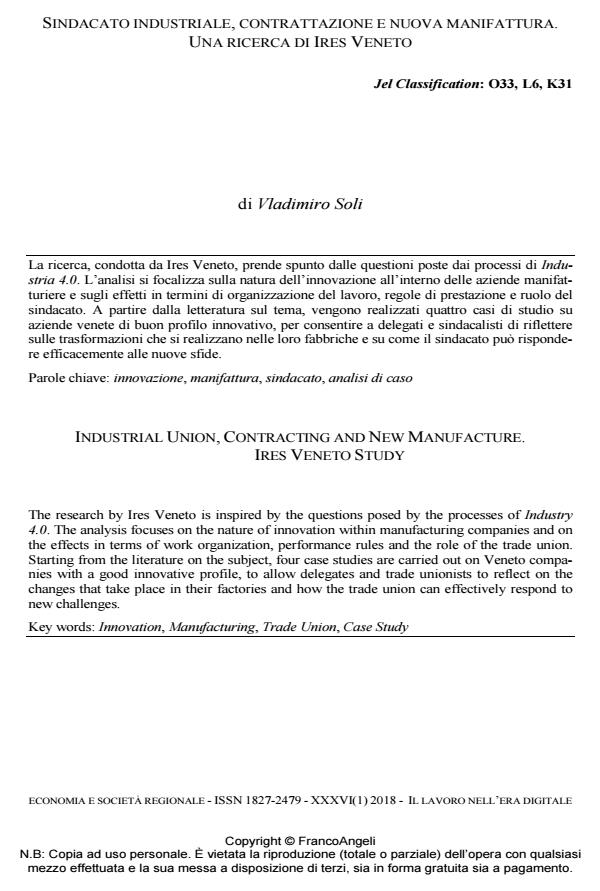Industrial union, contracting and new manufacture. Ires Veneto study
Journal title ECONOMIA E SOCIETÀ REGIONALE
Author/s Vladimiro Soli
Publishing Year 2018 Issue 2018/1
Language Italian Pages 26 P. 83-108 File size 325 KB
DOI 10.3280/ES2018-001007
DOI is like a bar code for intellectual property: to have more infomation
click here
Below, you can see the article first page
If you want to buy this article in PDF format, you can do it, following the instructions to buy download credits

FrancoAngeli is member of Publishers International Linking Association, Inc (PILA), a not-for-profit association which run the CrossRef service enabling links to and from online scholarly content.
The research by Ires Veneto is inspired by the questions posed by the processes of Industry 4.0. The analysis focuses on the nature of innovation within manufacturing companies and on the effects in terms of work organization, performance rules and the role of the trade union. Starting from the literature on the subject, four case studies are carried out on Veneto companies with a good innovative profile, to allow delegates and trade unionists to reflect on the changes that take place in their factories and how the trade union can effectively respond to new challenges.
Keywords: Innovation, Manufacturing, Trade Union, Case Study
Jel codes: O33, L6, K31
- L'azione sindacale nell'organizzazione flessibile e digitale del lavoro Daniele Di Nunzio, in ECONOMIA E SOCIETÀ REGIONALE 2/2018 pp.77
DOI: 10.3280/ES2018-002005
Vladimiro Soli, Sindacato industriale, contrattazione e nuova manifattura. una ricerca di Ires Veneto in "ECONOMIA E SOCIETÀ REGIONALE " 1/2018, pp 83-108, DOI: 10.3280/ES2018-001007